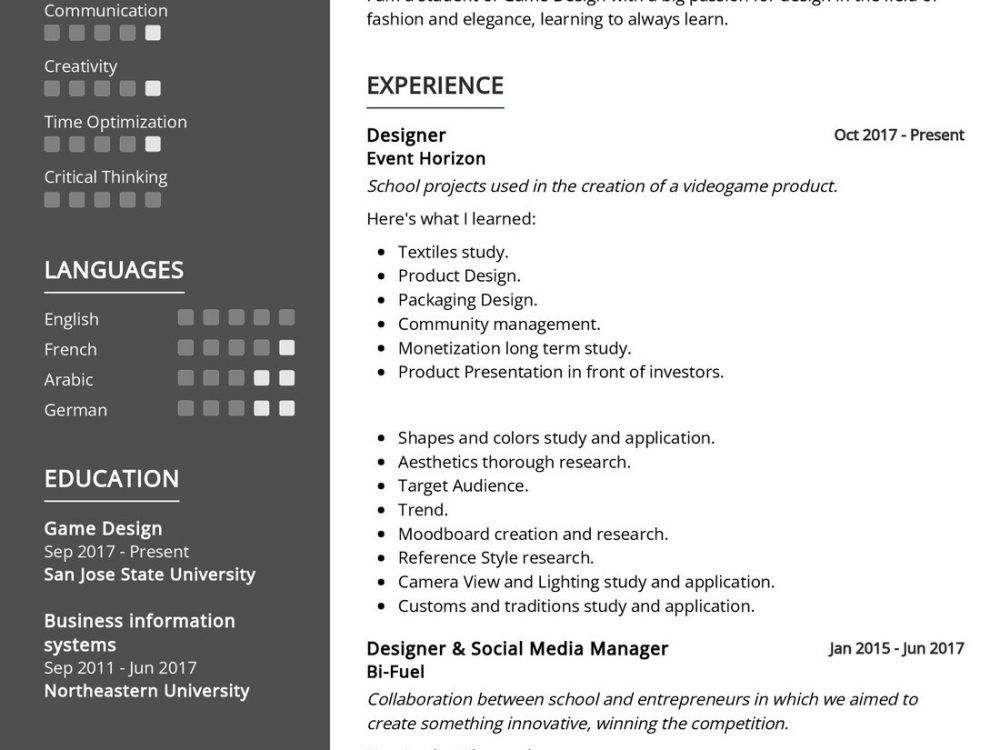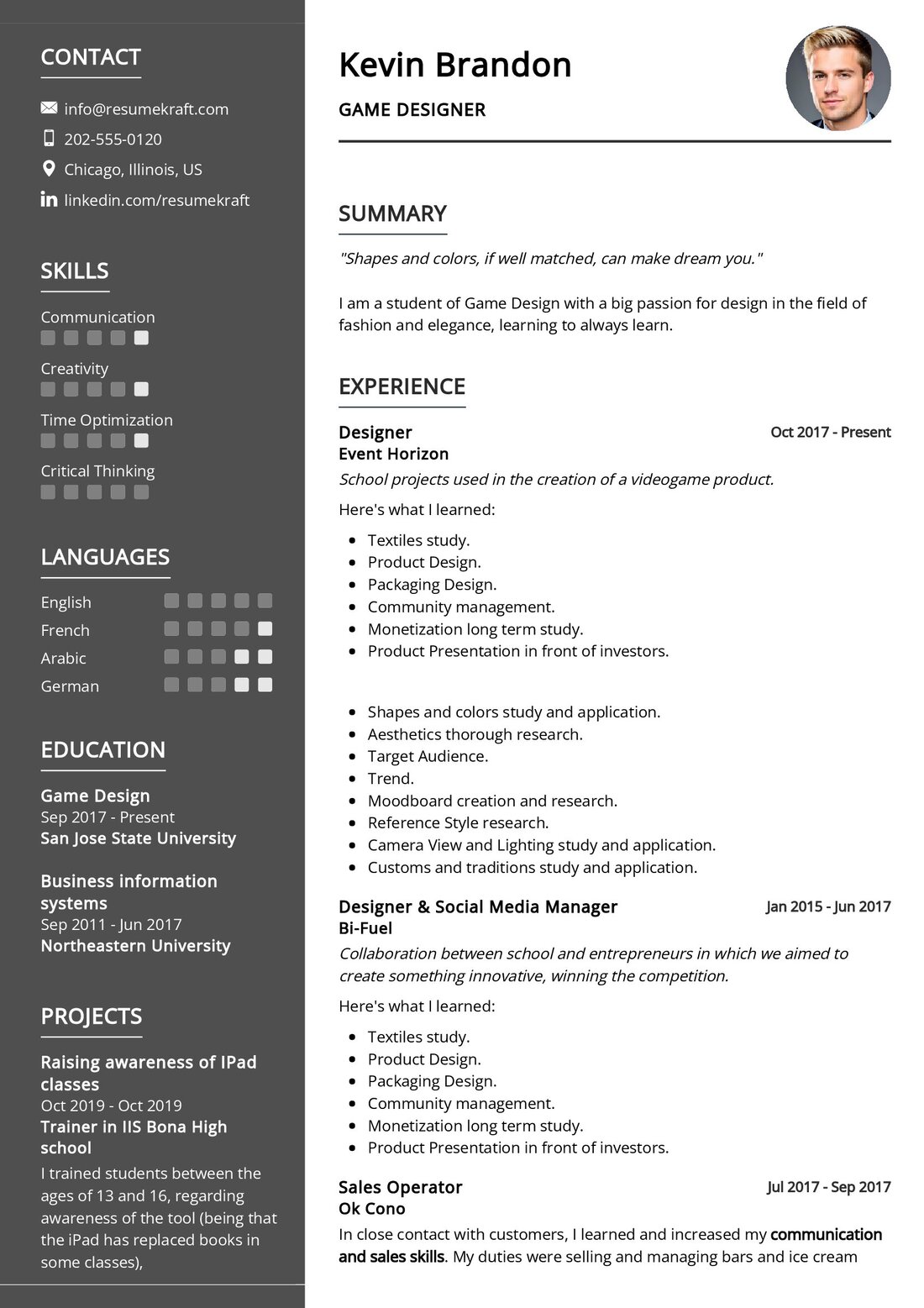What is the Role of a Game Designer?
The world of gaming is vast and ever-evolving, and at its heart lies the role of a Game Designer. This dynamic role is a blend of creativity, technical prowess, and storytelling. But what exactly does a Game Designer do? Let’s dive into the captivating realm of game design and explore the multifaceted responsibilities of this role.
A Game Designer is the visionary behind a game’s concept, mechanics, and overall user experience. They craft the narrative, design the characters, and define the rules of the game. They are the architects of virtual worlds, creating immersive experiences that captivate players around the globe. Collaborating closely with artists, programmers, and sound designers, a Game Designer ensures that every element of the game aligns with their vision, resulting in a cohesive and engaging player experience.
What are the Game Designer Job Requirements?
Stepping into the shoes of a Game Designer requires a unique blend of skills and qualifications. From a strong foundation in game mechanics to a flair for storytelling, here’s what it takes to excel in this role:
- A Bachelor’s degree in Game Design, Computer Science, or a related field, laying the groundwork for a career in game development.
- A deep understanding of game mechanics, player psychology, and user experience principles.
- Proficiency in game design software and tools, such as Unity, Unreal Engine, or Godot.
- Strong storytelling skills, the ability to weave compelling narratives that engage players.
- Excellent communication skills, vital for collaborating with cross-functional teams and presenting ideas.
- A passion for gaming, staying updated with the latest industry trends and innovations.
Additional certifications or courses in game design can further bolster your credentials and set you apart in the competitive job market.
What are the Responsibilities of a Game Designer?
The role of a Game Designer is a tapestry of varied responsibilities, each contributing to the creation of memorable gaming experiences. Let’s delve into the core tasks that define this role:
- Conceptualizing and designing game mechanics, levels, and characters.
- Scripting and storyboarding game narratives, ensuring an engaging flow.
- Collaborating with artists and programmers to bring the game vision to life.
- Testing and refining game elements based on player feedback and analytics.
- Staying updated with industry trends to incorporate the latest technologies and design principles.
- Leading brainstorming sessions and design reviews, fostering a culture of innovation and collaboration.
Each responsibility is a testament to the Game Designer’s dedication, creativity, and technical expertise.
Game Designer Resume Writing Tips
Creating a standout resume as a Game Designer is your first step towards landing that dream role. Here are some tailored tips to help you craft a resume that truly reflects your skills, experiences, and passion:
- Highlight your most notable game projects, detailing your specific contributions and the impact on player engagement.
- Showcase any awards or recognitions you’ve received in the gaming industry.
- Include a diverse skill set, emphasizing both your technical proficiency and creative abilities.
- Personalize your resume for the specific role, weaving a narrative that resonates with the job description.
Game Designer Resume Summary Examples
Your resume summary is a snapshot of your professional journey. It should encapsulate your expertise, achievements, and passion for game design. Here are some examples to inspire you:
- “Innovative Game Designer with 8 years of experience, known for creating immersive narratives and pioneering game mechanics. Adept at collaborating with cross-functional teams to bring game visions to life.”
- “Passionate Game Designer with a track record of developing top-charting games. Skilled in leveraging player feedback to refine game elements, ensuring captivating and seamless experiences.”
- “Experienced Game Designer with a flair for storytelling and a deep understanding of player psychology. Proven expertise in designing diverse game genres, from RPGs to strategy games.”
Create a Strong Experience Section for Your Game Designer Resume
Your experience section is a testament to your journey in the gaming world. It should highlight your contributions, innovations, and the impact of your designs. Here are some examples to guide you:
Sample Education Section for Your Game Designer Resume
While passion and creativity are at the core of game design, a strong educational background can set the foundation for a successful career. Here’s a sample education section:
- M.Sc. in Game Design, MIT, Cambridge, MA, 2018
- B.Sc. in Computer Science, Stanford University, Stanford, CA, 2016
- Certified Game Developer, International Game Developers Association, 2015
Game Designer Skills for Your Resume
From technical prowess to creative vision, a Game Designer’s skill set is diverse and dynamic. Here’s a breakdown of the essential skills:
Soft Skills:
- Creativity and innovation
- Storytelling and narrative design
- Team collaboration
- Problem-solving
- Attention to detail
Hard Skills:
- Proficiency in game design software (e.g., Unity, Unreal Engine)
- Scripting and programming
- Level design
- Player psychology and user experience design
- 3D modeling and animation
Most Common Mistakes to Avoid When Writing a Game Designer Resume
While crafting your Game Designer resume, it’s crucial to sidestep common pitfalls that can hinder your chances. Here are some mistakes to watch out for:
- Overloading your resume with technical jargon, which can obscure your unique value.
- Using a generic template, which fails to capture your individuality.
- Ignoring the importance of a personalized cover letter, a missed opportunity to connect with potential employers.
- Focusing solely on job duties without highlighting achievements and innovations.
- Overlooking the proofreading process, which can leave minor errors that tarnish your professional image.
Key Takeaways for Your Game Designer Resume
As we wrap up, let’s revisit the essential insights to keep in mind:
- Emphasize your unique blend of technical and creative skills, showcasing your versatility as a Game Designer.
- Highlight your most impactful game projects, detailing your contributions and the game’s success.
- Personalize your resume for the specific role, resonating with the job description and company culture.
- Include any awards, recognitions, or courses that further bolster your credentials in the gaming world.
Finally, remember to utilize resources like AI Resume Builder, Resume Design, Resume Samples, Resume Examples, Resume Skills, Resume Help, Resume Synonyms, and Job Responsibilities to craft a standout application and prepare for the Game Designer job interview.
With these insights in hand, you’re well-equipped to craft a resume that truly reflects your journey, passion, and expertise in game design. Best wishes on your quest to land that dream Game Designer role!


